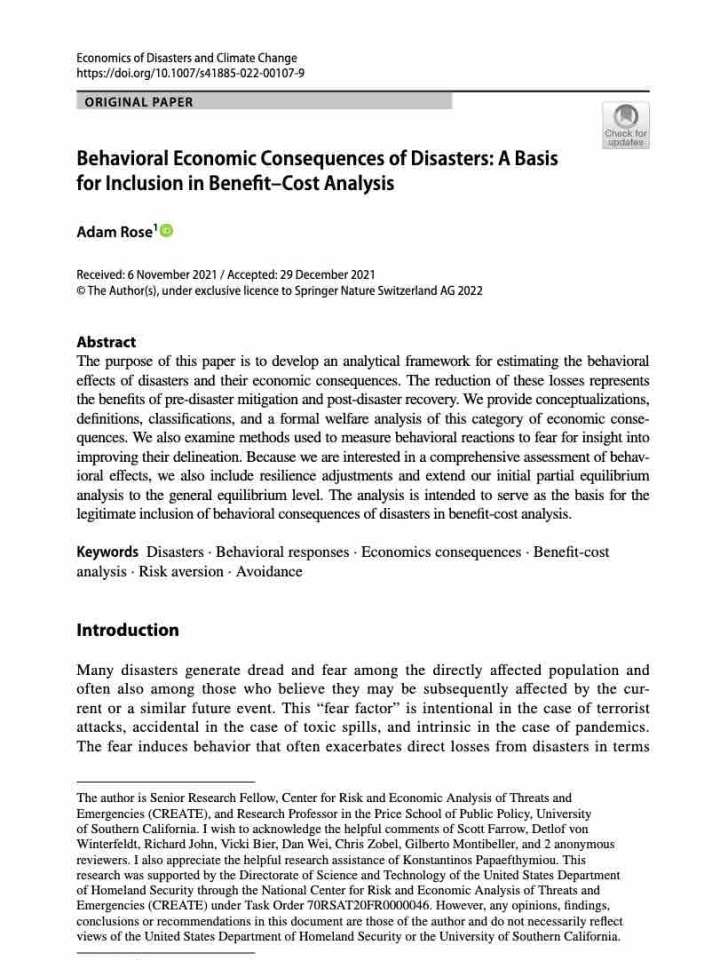Behavioral economic consequences of disasters: a basis for inclusion in benefit–cost analysis
This paper's purpose is to develop an analytical framework for estimating the behavioral effects of disasters and their economic consequences. The reduction of these losses represents the benefits of pre-disaster mitigation and post-disaster recovery. Many disasters generate dread and fear among the directly affected population and often also among those who believe they may be subsequently affected by the current or a similar future event.
This “fear factor” is intentional in the case of terrorist attacks, accidental in the case of toxic spills, and intrinsic in the case of pandemics. The analysis is intended to serve as the basis for the legitimate inclusion of behavioral consequences of disasters in benefit-cost analysis.
Explore further
